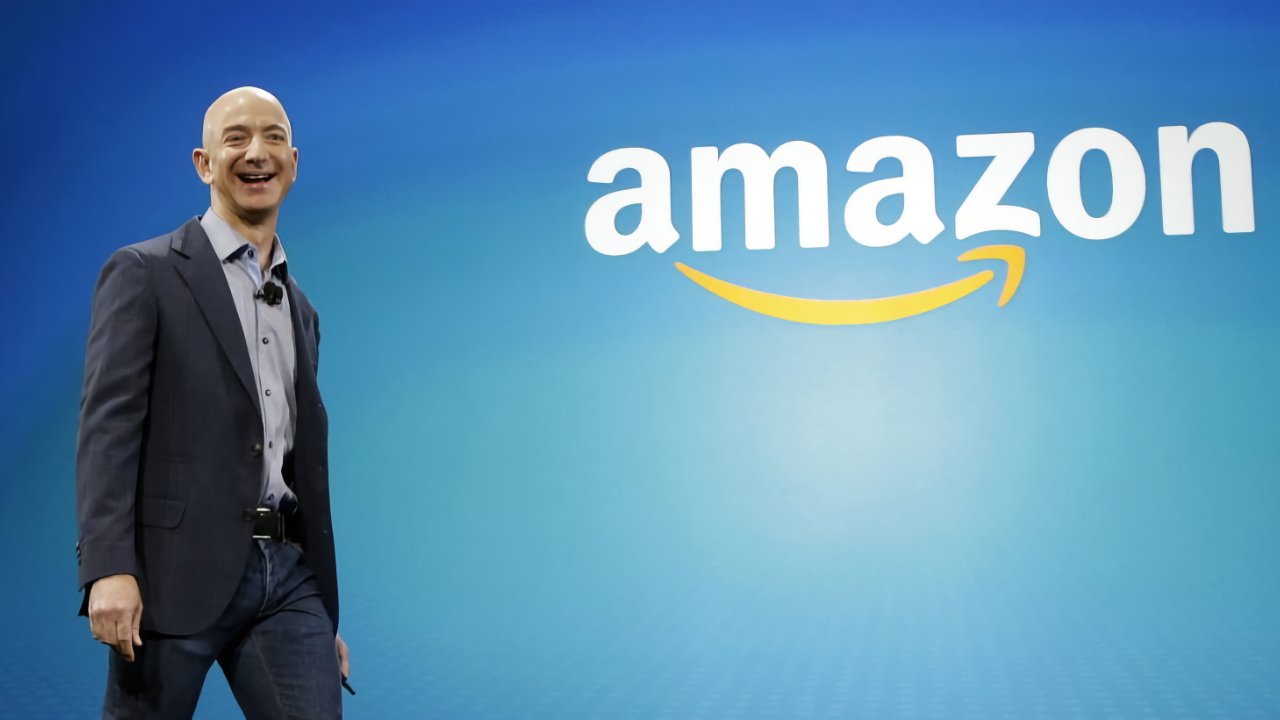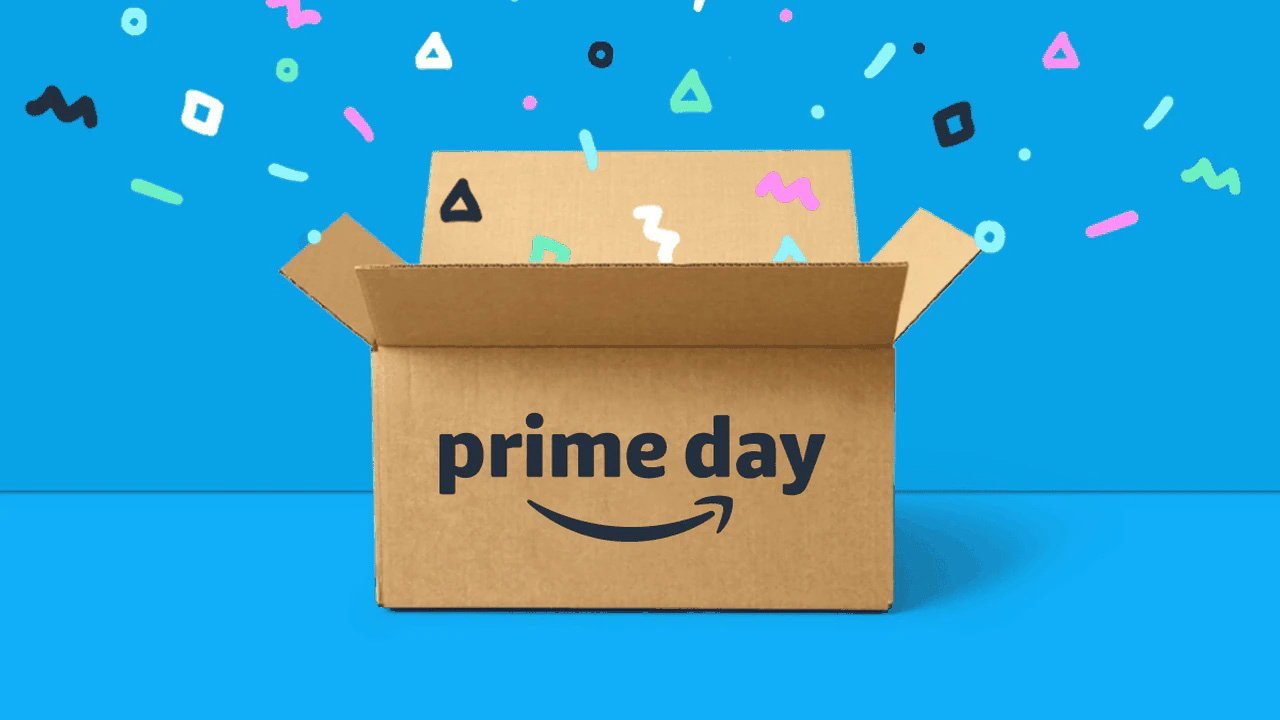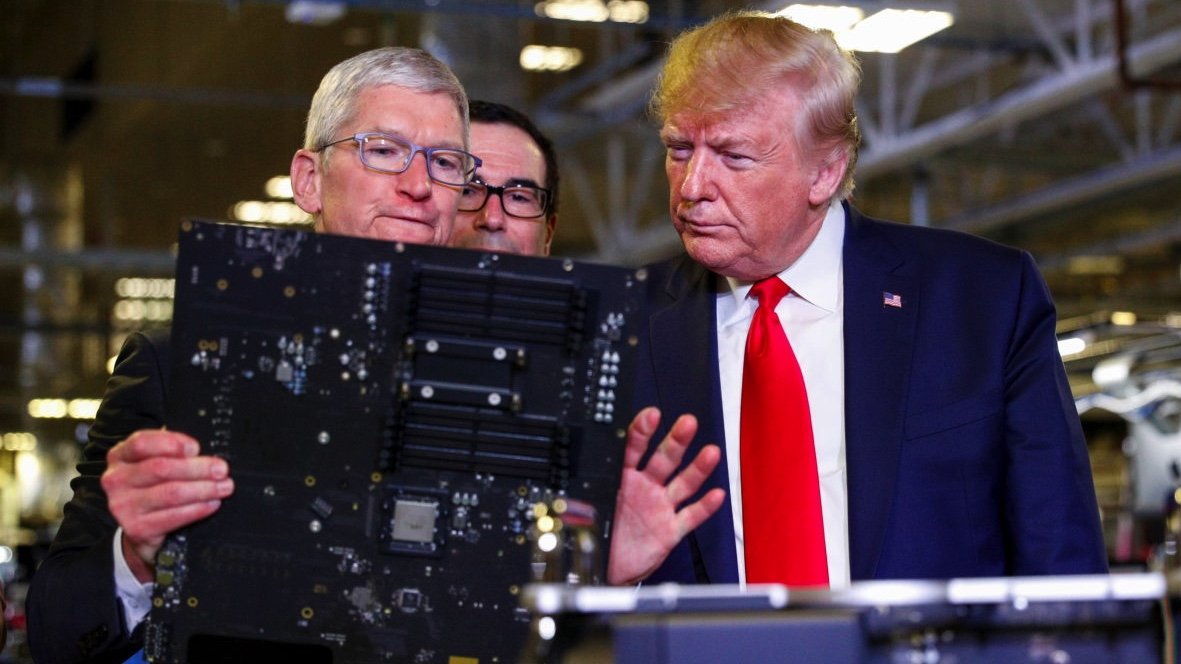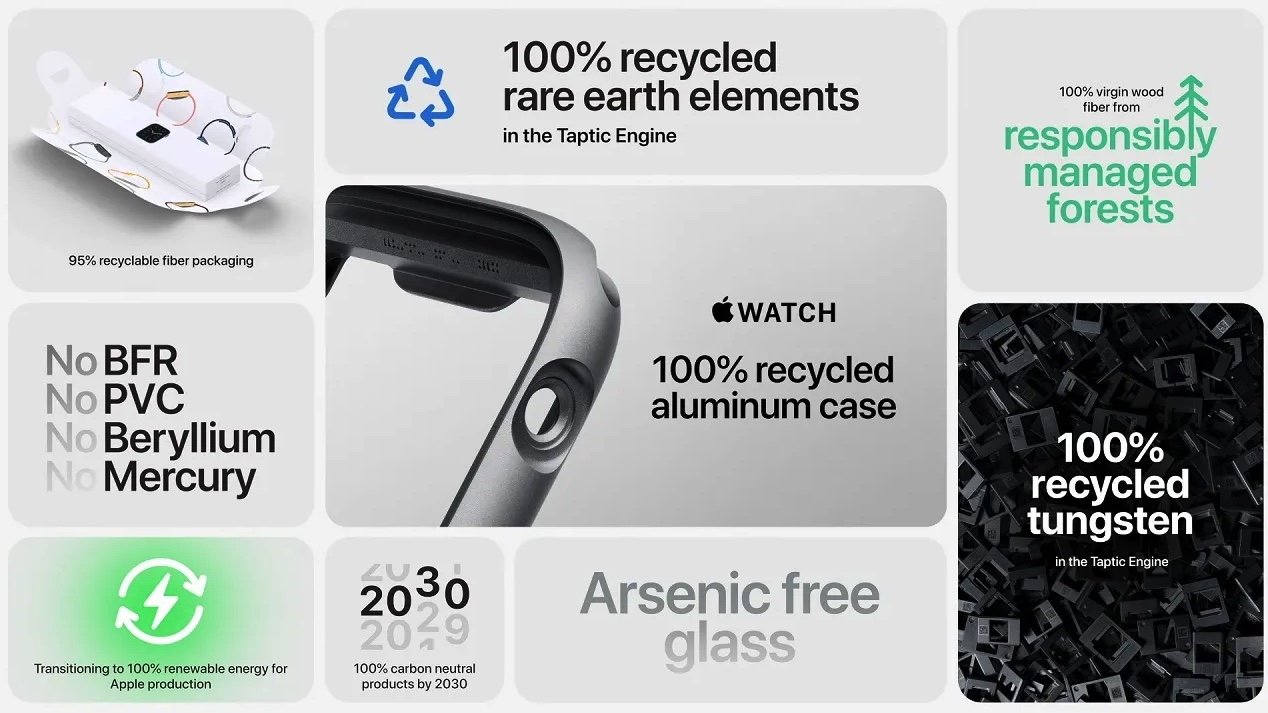Amazon denies it had plans to be clear about consumer tariff costs
Reports of Amazon planning to display the specific impact of President Trump's tariffs on everything it sells, angered the White House -- but now the retailer claims there was never any such plan for the main site.

Jeff Bezos -- image credit: Amazon
As it's US companies and their customers who pay the cost of Trump's "reciprocal" tariffs, it's been clear that prices will rise, and there has already been panic-buying of iPhones. There hasn't been a clear indicator of precisely what the tariffs will add to the price of specific items.
Then Amazon was reported to be about to change this and make it clear what the impact was. According to Punchbowl News on Tuesday morning, Amazon was allegedly planning to display that detail next to every item affected.
Amazon has now denied it, but the White House took the claim seriously enough to call out the company for its actions.
"This is hostile and political act by Amazon, "White House press secretary Karoline Leavitt said while seizing the microphone at a press briefing.
Amazon had not announced such a plan, however. Following the White House's reaction, Amazon issued a statement denying the report.
"The team that runs our ultra low cost Amazon Haul store has considered the idea of listing import charges on certain products," an Amazon spokesperson told AppleInsider. "Teams discuss ideas all the time. This was never a consideration for the main Amazon site and nothing has been implemented on any Amazon properties."
If it had been correct, a decision to display the cost of the tariffs would have followed the company's alleged attempts to mitigate that impact. According to the Financial Times, Amazon has been pressuring its suppliers to cut prices, in order to limit the effect of the tariffs.

Amazon's Prime Day will have fewer deals because of the tariffs
Amazon sellers pull out of Prime Day
Then according to Reuters, consultants representing hundreds of Amazon suppliers say that their clients have been pulling out of Prime Day. They are reportedly reluctant to commit to Prime Day's usual discounts because of the uncertainty over the tariffs.
While reports of the move angered the White House, it actually comes just two months after what was seen as an attempt to curry favor with Trump. Since February 2025, Amazon Prime has added every season of his "The Apprentice" show to its catalog.
Amazon Prime, like all streamers other than Apple TV+, regularly alters its library, but adding this show to the US and perhaps particularly the Canadian libraries is another indication of Trump support from Amazon head and Washington Post owner Jeff Bezos.
He previously donated $1 million to Trump's inauguration fund. According to Axios, Bezos has also previously been engaged with Trump on political issues for longer than expected.
In July 2024, he was reportedly advising Trump over his pick for vice president, as well as then killing the Washington Post's planned endorsement of Kamala Harris for the presidency.
Bezos was not alone in contributing to Trump's inauguration, though, as Apple's Tim Cook also donated $1 million. It's likely that the donation later helped Cook persuade Trump to grant Apple a tariff exemption.
The current state of tariffs
During the election, then candidate Trump proposed day-one tariffs across the board with US trade partners. It didn't take that long for the administration to execute the start of the plan after he took office.
Trump's "reciprocal" tariffs began damaging US businesses from the moment they were announced, and then obviously continued to do so once they were in effect. Despite administration claims to the contrary, importing companies pay the tariffs, not the exporting countries. Those costs are then generally passed to the consumer.
But as well as the actual dollar impact on US firms and consumers, a massive problem has been how unpredictably variable the whole process is.

Tim Cook and Donald Trump, at the Mac Pro factory
Initially, Trump was adamant that there would be no tariff exemptions, then he granted Apple one, then claimed he hadn't. A spurious semiconductor investigation was back-dated, and prejudged, so that tariffs will again be imposed on Apple -- although we've passed the point that Trump said they would begin.
Then all tariffs were paused for 90 days, except they weren't for China, and then actually they weren't for anyone since a base tariff of 10% continued. Then China's tariff was raised to 125%, except it was really 145%, and then the White House halved that 90 day pause for some countries.
Trump has repeatedly claimed to be negotiating with China, but China doesn't seem to agree and has made multiple public statements denying that talks were in progress. What China has said is that initially it wouldn't keep retaliating against the US, but then Trump appears to have been pressuring other countries to raise their own tariffs against China.
China has also halted the export of rare minerals to US firms.

Apple Watch and other devices require rare minerals
That move will affect large tech companies such as Apple, but won't impact most US firms and consumers. However, the cost of Trump's China tariff is specifically hitting Amazon because it has so many small sellers whose businesses are threatened.
Just as with Apple, small US firms have been reliant on China because of the lack of manufacturing in the US. Chinese white-labeling firms have been using Amazon to supply US firms, who now cannot afford to import from China.
It's expected that some number of small US firms will go out of business, which also affects Amazon's overall sales. Such firms are ones who placed orders with China before the tariffs were raised, and have no option to pass on costs to US consumers because they have already pre-sold their products.
Larger firms such as board game manufacturers, book printers, and toy manufacturers, have also all really badly hit. And these are firms that have traditionally sold through Amazon.
What happens next for Apple
So at present, Apple is facing issues over its dependence on rare minerals in its products. Apple is expected to face a semiconductor tariff at some point, and its airlifting of Macs and iPhones to beat a tariff deadline is likely to have added no more than four days worth of stocks to its US inventory.
At time of writing, Apple's stock price is at $210.10. That's a significant increase from the $172.62 it reached on April 7, 2025 -- but still down on the $223.89 from before the tariff announcement.
Read on AppleInsider

Comments
It's funny and disgusting at the same time that the "White House" considers it a "hostile and political" act to tell the American public the truth about Trump's tariffs.
Anyone selling anything across the land is not gonna take the blame for that occupant in the White House. As we have heard from him so often business is business and he is the greatest at it. Isn’t he? According to his constant blathering he is the smartest man in the room or is it the world I keep forgetting?
EU does with VAT and taxes. US does with sales taxes. Why can't tariffs be included to let us know how much we're paying in tariffs?
It's called immediate transparency.
1) We do not tolerate attacks on staff members. At all. Commentary and derision based on what you think their political beliefs are are unacceptable. Discuss the topic, not the staffer.
2) If you make a sock puppet account to complain, we're going to find out. Like we did in this case.
3) Apple is the biggest company in the world. Amazon is Apple's main vendor outside of its own channels. Nearly every AppleInsider reader shops at Amazon. Feel free to move on and not comment if you think this doesn't impact you.
Tariffs have be screwing this country since it's earliest days when in the hands of greedy politicians. They love tariffs because the money just goes into a general funds that just kind of gets used up with little info on where.